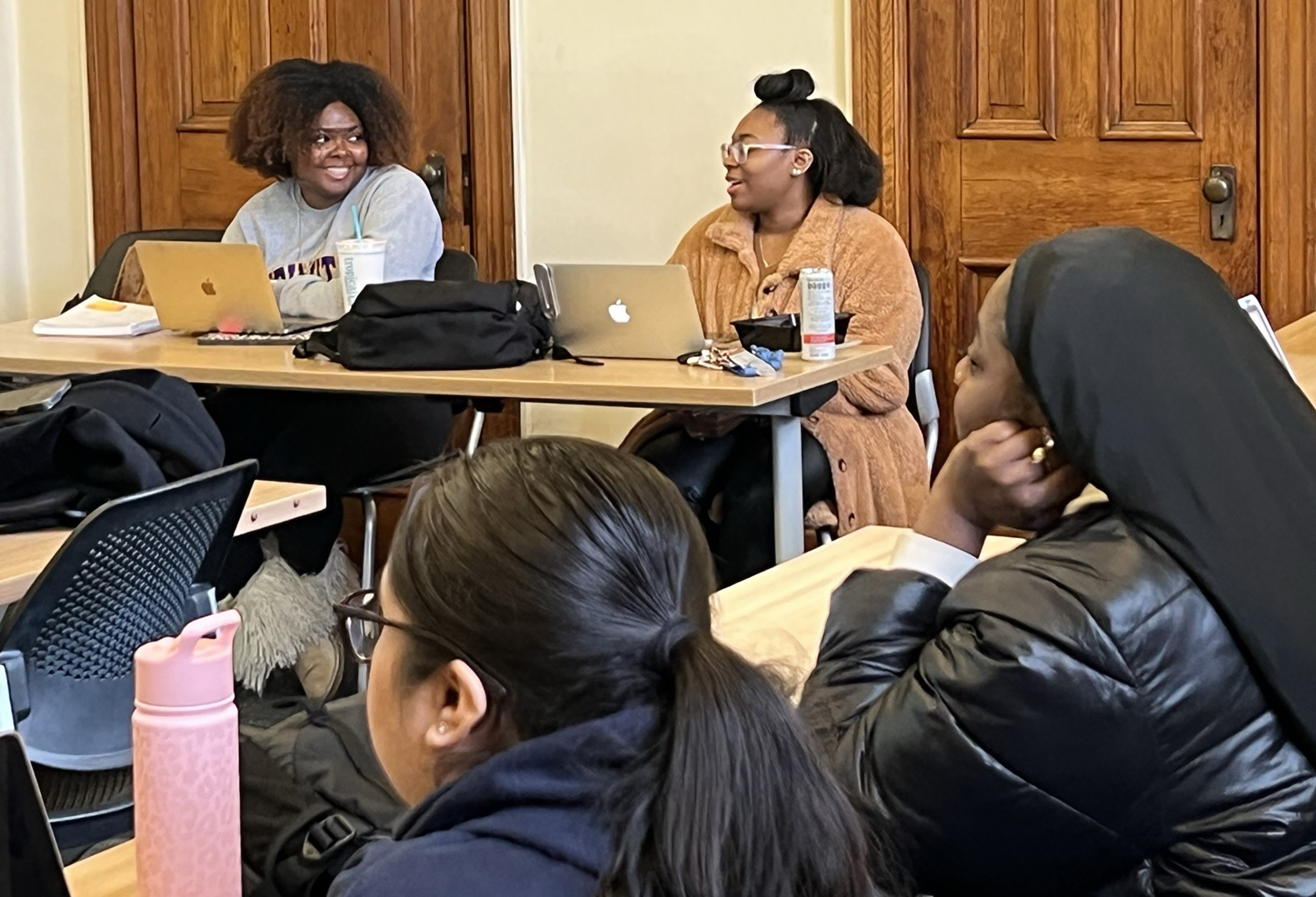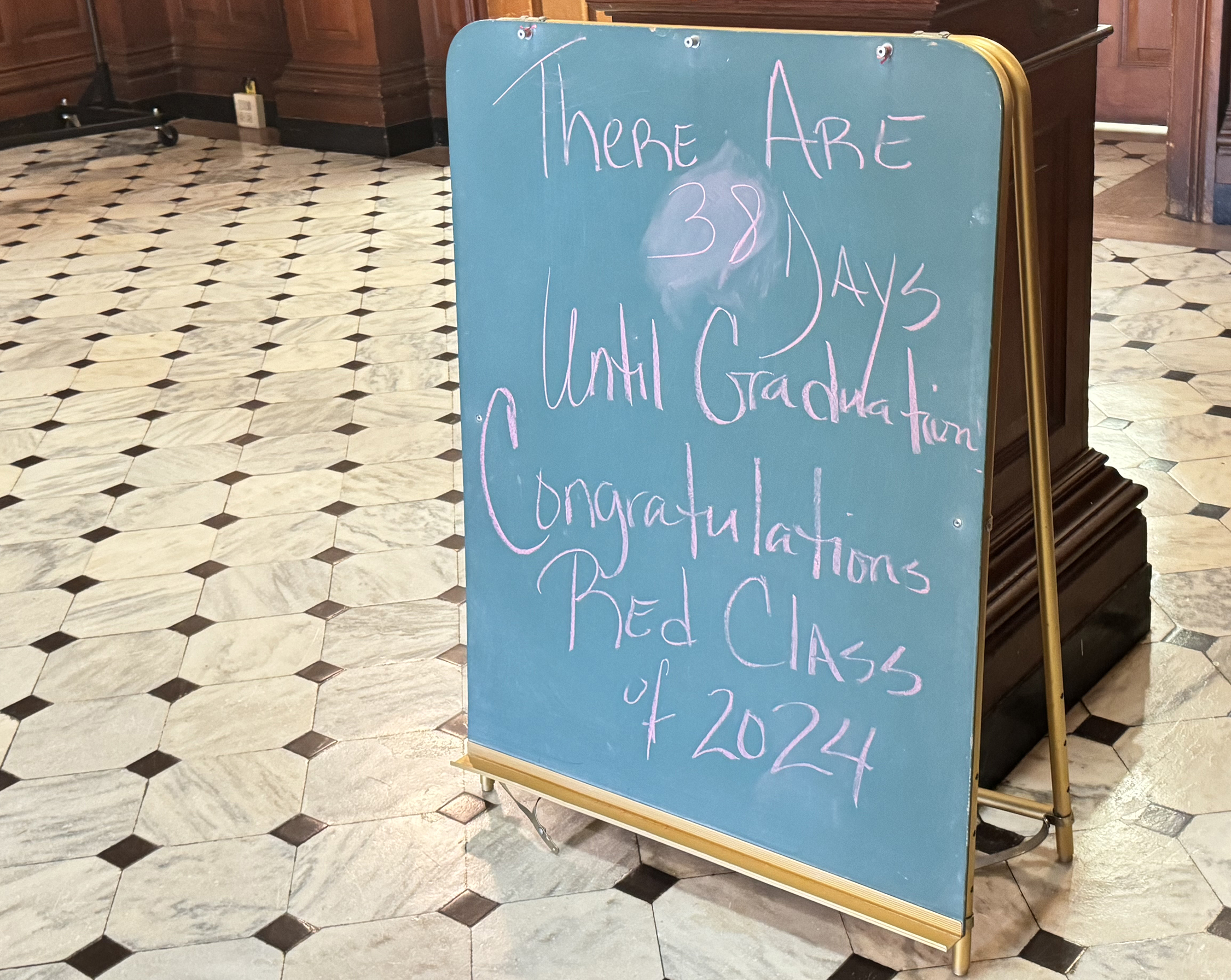
By Nina Payne
Trinity Times Correspondent
Trinity Washington University senior Myia Toney has been laser-focused on completing her final semester of undergraduate school, but she’s noticed lately that she’s been very tired.
After consulting with a few “experts,” Toney received a diagnosis for her fatigue. She has “senioritis.”
Senioritis isn’t a clinical term, it’s a colloquial one most frequently assigned to high school students during the months before their graduation.
But college students get it too, said Quiera Thomas, a student success advisor in Trinity’s College of Arts & Sciences.
“Key phrases that let me know a student is dealing with senioritis is, ‘I just don’t know what to do anymore, I’m completely overwhelmed, I can’t take anymore, this has to be the end, I just can’t,’ really that’s the one, ‘I just can’t,'” Thomas told Trinity Times. “When you are asking them what they can’t do, the answer is always the same. ‘I just can’t. Anything. I just can’t.'”
Senioritis isn’t just a term students invented to excuse laziness; it’s recognized by the National Academic Advising Association (NACADA) as a developmental identity crisis.
The term senioritis was certainly familiar to Toney, but when she dove into her 2024 spring semester with seven classes and an internship, she began to experience a growing sense of burnout that was new to her.
“Senioritis can be defined as a two-prong thing,” Thomas said. “On one end it is ultimate burnout. On the other end I think it is a fear of what’s on the other side of undergraduate school.”
According to a survey done by Handshake – an early career platform – more than four in five college seniors experience burnout during their undergraduate experience.
Many seniors at Trinity have their own definition of senioritis when describing being overwhelmed during the last year pursuing their bachelor’s degree.
Trinity senior Destiny Halsey is in the home stretch of the university’s Occupational Therapy Assistant program (OTA-B) and told Trinity Times the required hands-on field work Monday through Friday can be extremely draining.
Though Halsey is so close to the finish line, what is foremost in her mind is that there are still so many hurdles to jump to complete the semester and graduate in May.
“The Occupational Therapy (staff at Trinity) is very supportive,” she said. “They do site visits and check in on students, and there is no hesitation to make accommodations for students.”
That support has helped ease Halsey’s senioritis, making her feel not so alone during her senior year.
Not every senior at Trinity experiences senioritis, Thomas said, noting that she does recognize it in about 50% of the students she sees, and it’s not only students in their last year of college. It happens sometimes to juniors and sophomores.
“It’s really important for students to be able to recognize just the signs of general burnout,” she said. “Knowing, ‘maybe I do need a reset, maybe I do need additional support.’
“Go see your (student) advisor,” Thomas encouraged students feeling the signs of senioritis. “Having an open relationship with your (student) advisor, constant dialogue with your advisor, puts you in a space where you never have to be frantically searching for the answer by yourself.”
A 2021 NACADA report described senioritis as a complex combination of vulnerability, nostalgia, restlessness, weariness, disappointment, laziness, and entitlement.
“Students may vacillate between feeling happy about an upcoming graduation, sad about moving on from an environment they know how to navigate, and anxious about all the unknowns ahead,” the NACADA report said. “In addition to the emotional challenges, the senior year requires many students to split their focus between current academic demands and interviewing for jobs or wading through graduate program admissions requirements.”
As the month of April proceeds, Toney has addressed her senioritis by focusing on what she needs to do in order to graduate in May, a tactic Thomas called a solid course of action.
“Whether you have a handle on senioritis or whether it’s getting the best of you,” Thomas said, “it’s important to check in with your academic advisor and make sure you’re on track to graduate.”
It’s vital that each student takes accountability of what needs to be done to get to the finish line, she said.
Another method of combating senioritis for Toney has been to make sure she takes some time for herself at least once a week, whether it’s reading a book or just doing something she enjoys.
“When you’re a sophomore you know you have time,” Toney said. “But when it’s your senior year, you must go big or go home.”

Having senioritis at a small school like Trinity has been a help, she said.
“Professors at Trinity know my name,” Toney said. “They know if I’m just not feeling it that day, and they even ask me if I’m doing ok.”
For Mary Donaldson, a senior nursing major at Trinity, taking “self-help classes” during her final year of college seems to have cured her senioritis blues.
Donaldson is currently enrolled in “Dance: Mind, and Body,” a contemporary dance course offered at the university where the students practice different dance movements and journal for homework.
That class has helped her build healthy coping mechanisms during this chapter of her academic career.
“I feel like I’ve had senioritis ever since I’ve been in school,” Donaldson said with a laugh.
However, she notes that she’s enjoyed being a senior at Trinity, especially in the nursing program where upperclassmen are given the opportunity to help and guide the underclassmen in their journey.
“While we’re ready to leave, it’s an exciting experience to be so close to starting your life,” Donaldson said of her impending graduation.As a student success advisor, Thomas recommends students with senioritis to “regroup and focus on the end goal. The only thing that can stop you from graduating is you.”